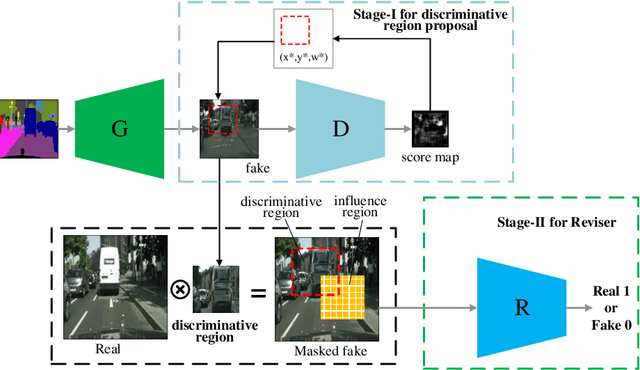Zhaorui Gu
Discriminative Region Proposal Adversarial Networks for High-Quality Image-to-Image Translation
Aug 06, 2018



Abstract:Image-to-image translation has been made much progress with embracing Generative Adversarial Networks (GANs). However, it's still very challenging for translation tasks that require high quality, especially at high-resolution and photorealism. In this paper, we present Discriminative Region Proposal Adversarial Networks (DRPAN) for high-quality image-to-image translation. We decompose the procedure of image-to-image translation task into three iterated steps, first is to generate an image with global structure but some local artifacts (via GAN), second is using our DRPnet to propose the most fake region from the generated image, and third is to implement "image inpainting" on the most fake region for more realistic result through a reviser, so that the system (DRPAN) can be gradually optimized to synthesize images with more attention on the most artifact local part. Experiments on a variety of image-to-image translation tasks and datasets validate that our method outperforms state-of-the-arts for producing high-quality translation results in terms of both human perceptual studies and automatic quantitative measures.
 Add to Chrome
Add to Chrome Add to Firefox
Add to Firefox Add to Edge
Add to Edge